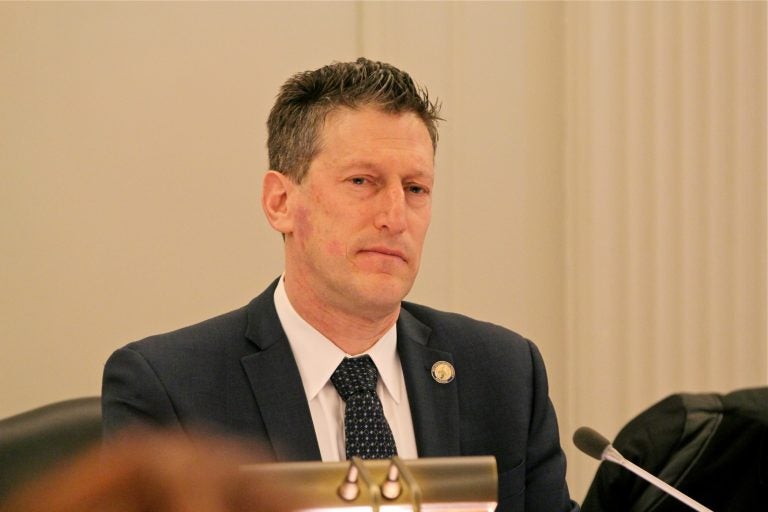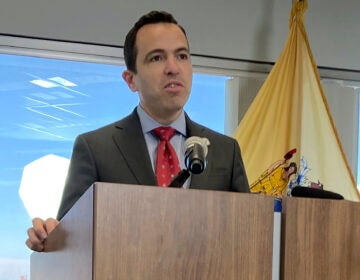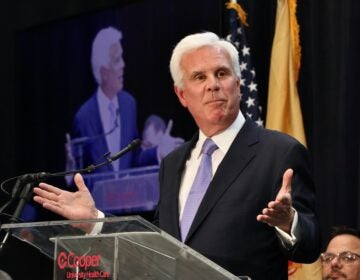Judge agrees to block N.J.’s donor disclosure law
A federal judge on Wednesday agreed to hold up N.J.’s recent political donor disclosure law in response to a lawsuit brought by a think tank founded by the Koch brothers.

New Jersey Assemblyman Andrew Zwicker. (Emma Lee/WHYY)
A federal judge on Wednesday agreed to hold up New Jersey’s recent political donor disclosure law in response to a lawsuit brought by a think tank founded by the Koch brothers.
U.S. District Judge Brian Martinotti granted the preliminary injunction Wednesday after Americans for Prosperity sued earlier this year to block the law.
The Democrat-led Legislature and Democratic Gov. Phil Murphy enacted the measure this year intending to require certain advocacy groups to disclose their donors.
They cited state election law enforcement reports indicating ever-rising amounts of undisclosed cash involved in state politics.
But the law runs afoul of the Constitution and could lead to a chill on First Amendment rights by deterring potential contributions to organizations, argued Americans for Prosperity.
The measure required political organizations and some nonprofits to disclose all spending over $3,000, up from $1,600. It also mandated that contributors giving more than $10,000 would be disclosed.
The state argued that the bill simply aimed at uncovering who was “pulling the strings” in politics, but Martinotti took issue with language in the measure. Specifically, he questioned how the law made merely factual political information subject to disclosure.
“Most constitutionally troubling to the Court is the way in which … the Act brings communications of purely factual political information into a disclosure and financial-reporting regime historically limited to electioneering communications,” he wrote.
Historically, disclosure applied to so-called electioneering messages, which amount to pleas for voters to elect a specific candidate.
The ruling means the measure will likely not be in effect for this year’s election in New Jersey, where the General Assembly is on the ticket.
But the judge added that his ruling will not prevent regulators or lawmakers from clarifying the law.
In a statement, AFP’s New Jersey director, Tony Howley, praised the decision for “preserving all Americans’ First Amendment rights while this important issue is litigated.”
“Americans should be free to advocate for causes they believe in without retaliation by elected officials,” he said.
Democratic Assemblyman Andrew Zwicker, who sponsored the law, said in an interview he was disappointed in the decision but sounded determined to pursue disclosure requirements.
“No more hiding,” he said. “You have every right to advocate, but we the people have every right to know where the money comes from.”
Democratic state Sen. Troy Singleton, who also sponsored the measure, pledged to continue pushing for disclosure and said that “it’s too important to let go.”
Murphy signed the law this year after first rejecting it and saying he had “constitutional concerns” about the measure, specifically that the measure could infringe on the First Amendment’s rights of association.
Murphy signed the bill after the Democrat-led Legislature threatened an override of his veto, though the governor and the bill’s sponsor said that a follow-up bill to “fix” the measure would be coming.
Such a bill has not advanced, though, since the state Senate president said a “fix” wasn’t part of the deal to enact the law.
Americans for Prosperity is a political network backed by conservative industrialists Charles and the late David Koch.
WHYY is your source for fact-based, in-depth journalism and information. As a nonprofit organization, we rely on financial support from readers like you. Please give today.




